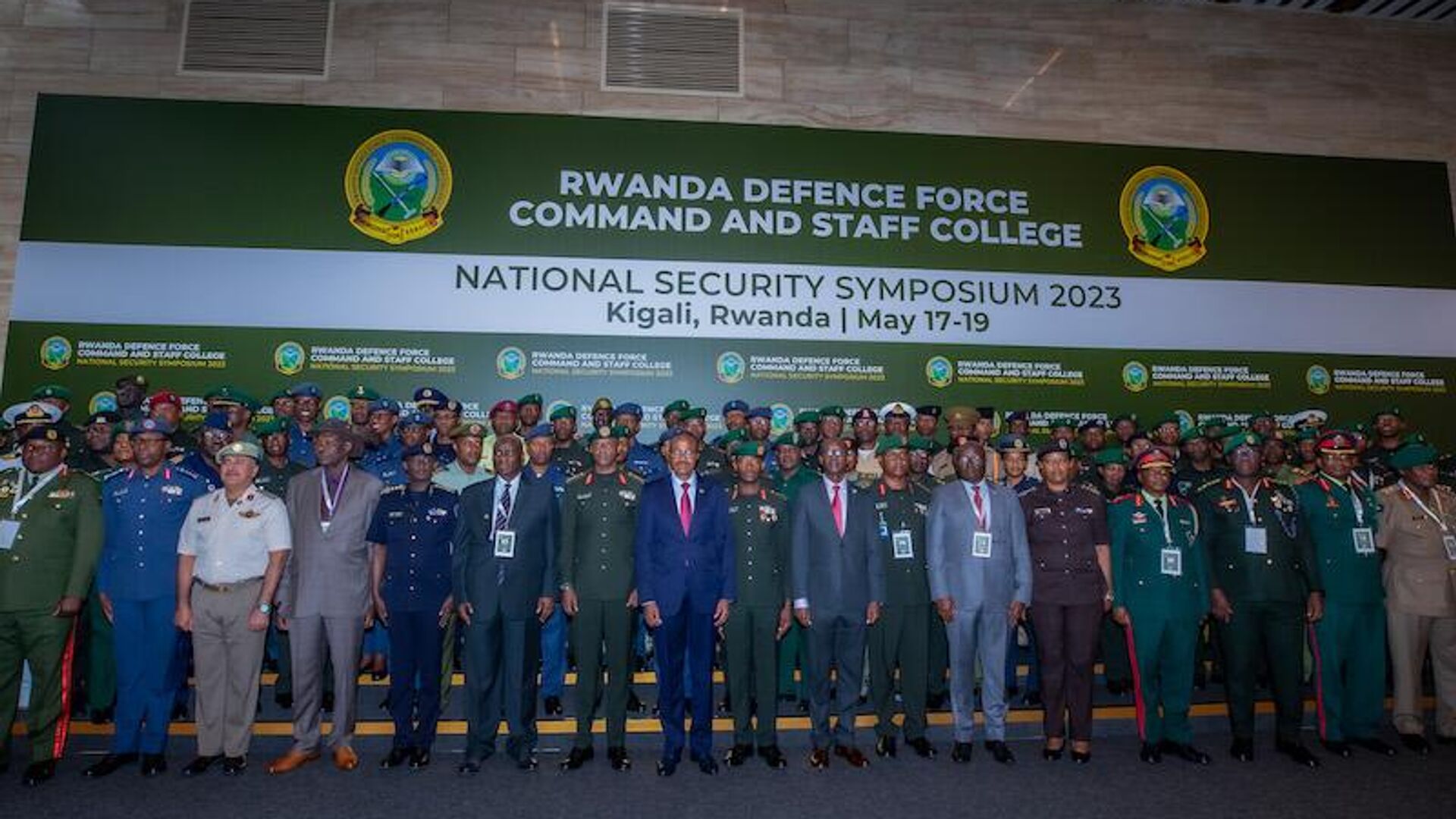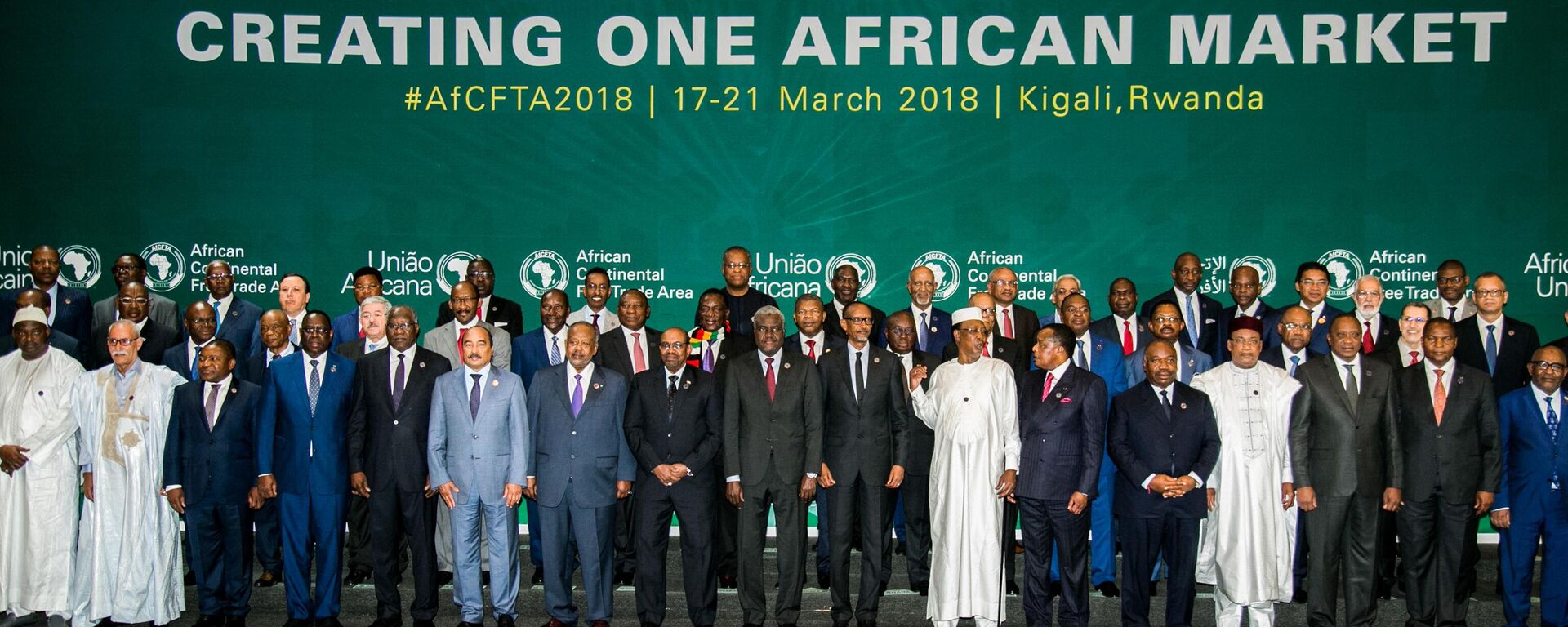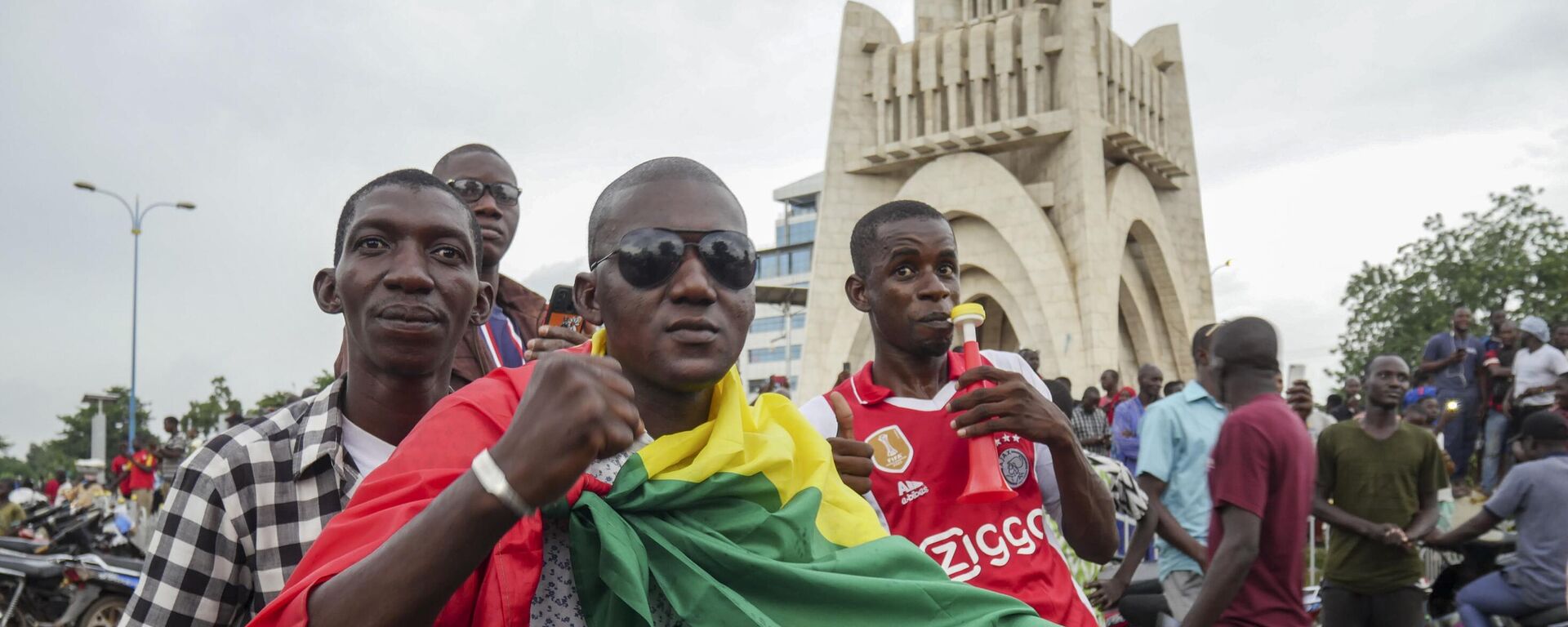https://en.sputniknews.africa/20230519/constant-foreign-interference-disrupts-africa-top-officials-experts-say-1059344162.html
Constant Foreign Interference Disrupts Africa, Top Officials, Experts Say
Constant Foreign Interference Disrupts Africa, Top Officials, Experts Say
Sputnik Africa
Foreign involvement is often a factor in conflicts in Africa, highlighted Moussa Faki Mahamat, African Union Commission Chairperson, during a panel discussion on foreign interference on the continent.
2023-05-19T12:33+0200
2023-05-19T12:33+0200
2023-05-19T12:33+0200
sub-saharan africa
east africa
rwanda
cooperation
neocolonialism
colonialism
burundi
african union (au)
https://cdn1.img.sputniknews.africa/img/07e7/05/13/1059344471_0:6:801:456_1920x0_80_0_0_d5e9ab6db9a53e3a0d6820aa72ab2160.jpg
Foreign involvement is often a factor in conflicts in Africa, highlighted Moussa Faki Mahamat, African Union (AU) Commission Chairperson, during Rwanda's 10th National Security Symposium, at a panel discussion on foreign interference on the continent.The official emphasized that foreign interference not only destabilizes the continent, but also complicates conflict resolution efforts.Rwanda's Foreign Minister Dr. Vincent Biruta highlighted the deep-rooted issue of foreign interference in Africa, which has been present since the colonial era and has persisted even despite decolonization and independence. He emphasized that external forces have consistently sought to exert control over the continent and exploit its resources.The minister emphasized that while foreign interference has been a persistent issue for Africa, it is possible to resist or minimize its impact by strengthening the continent's capacity to define its own policies and implement them for the benefit of its people. He noted that it is crucial for African states to limit interference from foreign powers by taking control of their own policies and relying less on external influence.In his turn, renowned Kenyan law professor and pan-Africanist, Patrick Loch Otieno Lumumba, commonly known as PLO Lumumba, quoted African-American historian John Henrik Clarke, stating that African countries regained their independence by mimicking European governance systems, which will not lead to success. In addition, Lumumba outlined that Europe is far from the only continent meddling in African politics. The 10th National Security Symposium, jointly organized by Rwanda Defense Force Command and Staff College (RDFCSC) and the University of Rwanda (UR) in 2023, has brought together academicians, government officials, diplomats, and subject matter experts, including generals and senior military officers, to discuss contemporary security issues with a theme of "Contemporary Security Challenges: The African Perspective."Over 300 participants of the event, including student officers of the Senior Command and Staff Course from Rwanda and such African nations as Botswana, Ethiopia, Ghana, Kenya, Malawi, Nigeria, Senegal, South Sudan, Tanzania, Uganda, and Zambia have gathered at the Kigali Convention Centre.The symposium discussions cover a wide range of topics, including good governance, migration and brain drain, foreign interference, the African Free Trade Area, digital technologies, and peacekeeping operations. The Rwandan Ministry of Foreign Affairs has stated that the participants will share their experiences on these subjects. In his opening remarks, Rwanda Minister of Defense Maj. Gen. Albert Murasira emphasized that the National Security Symposium has been instrumental in widening understanding and perspectives over the years by listening to diverse views from policy makers, practitioners, and scholars.
https://en.sputniknews.africa/20230423/african-private-sector-calls-for-further-trade-liberalization-within-afcfta-1058796853.html
https://en.sputniknews.africa/20230509/au-welcomes-constitutional-reform-planned-in-mali-1059142139.html
east africa
rwanda
burundi
Sputnik Africa
feedback@sputniknews.com
+74956456601
MIA „Rossiya Segodnya“
2023
News
en_EN
Sputnik Africa
feedback@sputniknews.com
+74956456601
MIA „Rossiya Segodnya“
Sputnik Africa
feedback@sputniknews.com
+74956456601
MIA „Rossiya Segodnya“
rwanda ministry of defense, foreign involvement, foreign intrusion, conflicts in africa, moussa faki mahamat, african union, commission chairperson, during a, panel discussion, foreign interference, on the continent, african union, the african union, humanitarian symposium, since 2010, bringing together, au commission, member states, to discuss, exchange views, critical issues, humanitarian situation, in africa, east africa, african countries, african continent, high-level conference, peace and security, united nations, security council
rwanda ministry of defense, foreign involvement, foreign intrusion, conflicts in africa, moussa faki mahamat, african union, commission chairperson, during a, panel discussion, foreign interference, on the continent, african union, the african union, humanitarian symposium, since 2010, bringing together, au commission, member states, to discuss, exchange views, critical issues, humanitarian situation, in africa, east africa, african countries, african continent, high-level conference, peace and security, united nations, security council
Constant Foreign Interference Disrupts Africa, Top Officials, Experts Say
At the 10th National Security Symposium in Kigali, Rwanda's capital, officials, including defense chiefs, policymakers, diplomats, and academics from across the continent and beyond, discussed the persistent and destabilizing effects of foreign interference in Africa.
Foreign involvement is often a factor in conflicts in Africa, highlighted Moussa Faki Mahamat, African Union (AU) Commission Chairperson, during Rwanda's 10th National Security Symposium, at a panel discussion on foreign interference on the continent.
The official
emphasized that foreign interference not only destabilizes the continent, but also complicates conflict resolution efforts.
"There is also the weakness of intra-African solidarity. Very often governments justify their calling upon other forces due to the fact that they are not able to face certain situations. They resort to external forces in order to maintain peace in their territories," Mahamat stated.
Rwanda's Foreign Minister Dr. Vincent Biruta highlighted the deep-rooted issue of foreign interference in Africa, which has been present since the colonial era and has persisted even despite decolonization and independence. He emphasized that external forces have consistently sought to exert control over the continent and exploit its resources.
The minister emphasized that while foreign interference
has been a persistent issue for Africa, it is possible to resist or minimize its impact by strengthening the continent's capacity to define its own policies and implement them for the benefit of its people.
He noted that it is crucial for African states to limit interference from foreign powers by taking control of their own policies and relying less on external influence.
"While some powers may seek to assert their influence based on their own interests, it is ultimately our responsibility to safeguard our sovereignty, and to define our interests and the path to achieve those priorities," Biruta outlined.
In his turn, renowned Kenyan law professor and pan-Africanist, Patrick Loch Otieno Lumumba, commonly known as PLO Lumumba, quoted African-American historian John Henrik Clarke, stating that African countries regained their independence by mimicking European governance systems, which will not lead to success.
"We, Africans, must stop operating in silos. Rwanda alone will not confront [the foreign influence]; Burundi alone will not confront them," Lumumba stated. "But if we go through the regional bodies and ultimately the African Union, we may indeed succeed in putting away these bulwarks. Africans must smell the coffee. If we don’t, they are going to continue to interfere."
In addition, Lumumba outlined that Europe is far from the only continent meddling in African politics.
"There is a new scramble for Africa. And the military bases that you see here, are telling you ‘If you don’t behave, we are going to use force'".
The 10th National Security Symposium, jointly organized by Rwanda Defense Force Command and Staff College (RDFCSC) and the University of Rwanda (UR) in 2023, has brought together academicians, government officials, diplomats, and subject matter experts, including generals and senior military officers, to discuss contemporary security issues with a theme of "Contemporary Security Challenges: The African Perspective."
Over 300 participants of the event, including student officers of the Senior Command and Staff Course from Rwanda and such African nations as Botswana, Ethiopia, Ghana, Kenya, Malawi, Nigeria, Senegal, South Sudan, Tanzania, Uganda, and Zambia have gathered at the Kigali Convention Centre.
The symposium discussions cover a wide range of topics, including good governance, migration and brain drain, foreign interference, the African Free Trade Area, digital technologies, and peacekeeping operations.
The Rwandan Ministry of Foreign Affairs has stated that the participants will share their experiences on these subjects. In his opening remarks, Rwanda Minister of Defense Maj. Gen. Albert Murasira emphasized that the National Security Symposium has been instrumental in widening understanding and perspectives over the years by listening to diverse views from policy makers, practitioners, and scholars.
"This year's symposium provides an opportunity to discuss complex challenges facing the globe in general and our continent in particular. Such challenges range from building institutions and capacities for good governance; migration; emerging digital technologies; evaluate African initiatives to address some of our perennial challenges; foreign interference and the future of peacekeeping operations. The complex situation creates uncertainty to the functioning and survival of our nations and no single country can address them solely," Murasira outlined.



